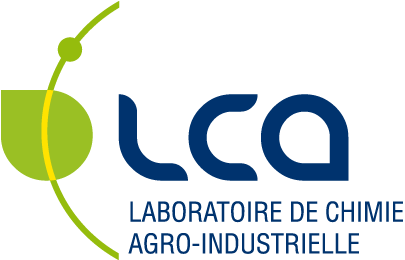Inhibition of Aflatoxin B1 Production by Procyanidins Present in Annona muricata and Uncaria tomentosa Aqueous Extracts
Résumé
Aflatoxin B1 (AFB1), primarily produced by Aspergillus flavus and A. parasiticus, is the most dangerous mycotoxin for humans and contaminates a variety of crops. To limit fungal growth and aflatoxin production in food and feed, research has been increasingly focusing on alternatives to pesticides. Studies show that some aqueous plant extracts with strong antioxidant properties could significantly impact AFB1 production, representing an eco-friendly and sustainable method to protect crops. The present study demonstrates that aqueous extracts of Anonna muricata (AM) and Uncaria tomentosa (UT) inhibit AFB1 synthesis in a dose-dependent manner with a half-maximal inhibitory concentration of 0.25 and 0.28 mg dry matter per milliliter of culture medium, respectively. This effect correlates with the presence of polyphenols and, more precisely, with condensed tannins. It is also related to the subsequent antioxidant activity of both extracts. A bio-guided fractionation followed by high-performance liquid chromatography and mass spectrometry analysis of the active fractions identifies procyanidins and, more precisely, catechin (5.3% w/w for AM and 5.4% w/w for UT) and epicatechin (10.6% w/w for AM and 25.7% w/w for UT) as the major components in both extracts. The analysis of how pure standards of these molecules affect AFB1 production demonstrates that catechin plays an essential role in the inhibition observed for both plant extracts, since the pure standard inhibits 45% of AFB1 synthesis at a concentration close to that of the extracts.
| Origine | Publication financée par une institution |
|---|---|
| licence |



